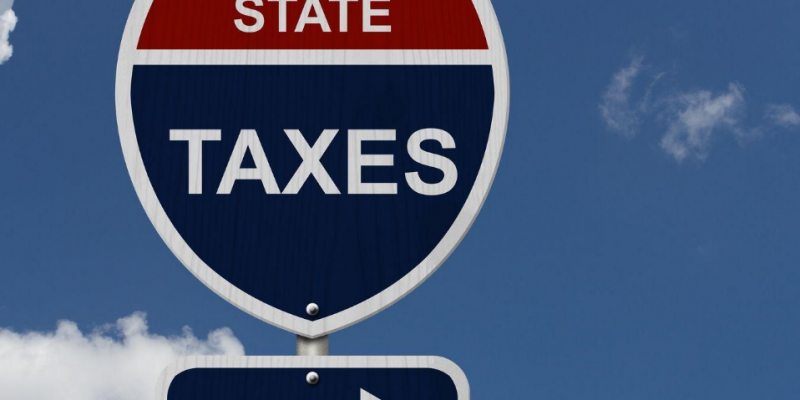After state and local government leaders shut down large portions of their local economies to thwart the spread of the coronavirus, putting millions of people out of work, some are now looking to raise taxes to fill budget shortfalls.
The full extent of the fiscal damage of these shutdowns is not yet known, economists say.
The “aftershocks are likely to plague state budgets for years, even if no additional shutdowns become necessary,” a new report by Pew Charitable Trusts states in its analysis of where states are getting money to fill their budget gaps.
Analyzing data from the U.S. Census Bureau, Pew created charts to explain how each state raises tax dollars (FY2019) and where they got their revenue (FY2018).
Combined, taxes and federal funds account for 81 percent of all revenue in the 50 states.
Federal funds are the greatest revenue source for Alaska, Louisiana, Mississippi, Montana, New Mexico and Wyoming.
Taxes are the largest revenue source in 44 states.
Taxes make up about half of state government revenue, with two-thirds of states’ total tax dollars coming from personal income taxes (37.9 percent) and sales taxes on general sales of goods and services (30.9 percent), Pew states.
Broad-based personal income taxes are the greatest source of tax revenue in 30 of the 41 states that impose such taxes. The highest share – 70.5 percent – is in Oregon.
General sales taxes are the largest revenue source in 15 of the 45 states that collect them. Florida relies the most on sales taxes, which account for 62.5 percent of the state’s revenue.
Other sources bring in the most tax revenue for other states: Alaska’s and South Dakota’s revenues rely the most on severance taxes. Vermont relies the most on property taxes. Delaware relies the most on license taxes and fees, like franchise taxes. New Hampshire relies the most on selective sales taxes on goods and services.
Tax increases in different forms have been announced in cities and states across the U.S. to deal with budget shortfalls.
In Seattle, a new measure recently approved by the City Council will add a tax on companies posting at least $7 million in annual payroll, and tax businesses based on their employees’ salaries. Businesses will be taxed up to 2.4 percent for each Seattle-based employee who earns more than $150,000.
In Nashville, the mayor and Metro Council approved a 34 percent property tax increase to deal with budget shortfalls. Prior to the mayor taking office this year, in fiscal 2019, Nashville’s spending had already grown faster than revenue across city government, leaving a budget shortfall of up to $41.5 million, Joe Colletti, senior fellow at the John Locke Foundation, notes. On top of dealing with $1 billion in financial costs resulting from a deadly March 2 tornado, Nashville is expected to lose $472 million over 16 months because of its coronavirus shutdowns.
Instead of raising taxes, the Better Cities Project offers alternatives for government leaders to consider in order to rebuild their cities and get people back to work.
In its “Getting Back To Work” plan, available for free online, the authors argue that the local governmental response to the coronavirus “has devastated local economies and the result may be policies that, while meaning well, could make matters worse.”
“The next decade of economic growth in America will largely rely on how quickly cities recover from the COVID-19 shutdown,” they add.
“You can’t out-earn bad spending habits forever,” Colletti, an author of part of the report, writes. “Cities and counties of all sizes have been raising taxes and dipping into reserves to cover day-to-day expenses – some as a matter of habit for years or even decades.”
With no reserves in place, the massive property tax hike in Nashville is expected to raise $332 million, combined with cost reductions of $165 million, and other revenue increases of $69 million. Cooper’s cuts “have been minor,” Colletti argues, “but 50 percent reductions in economic incentive payments and assistance to nonprofits and chambers of commerce could set the stage for more fundamental restructuring of city government.
“If reform does follow, Nashville’s fiscal crisis could leave the city better able to meet future fiscal threats,” he adds.
The report offers solutions for Nashville leaders, and leaders throughout the U.S., to consider including, limiting total debt and how tax revenue should be used toward principal and interest payments, differentiating between taxes and fees and how they are directed to specific revenue streams, implementing pension reform, increasing accountability and streamlining accounting practices, among other measures.
Advertisement
Advertisement

